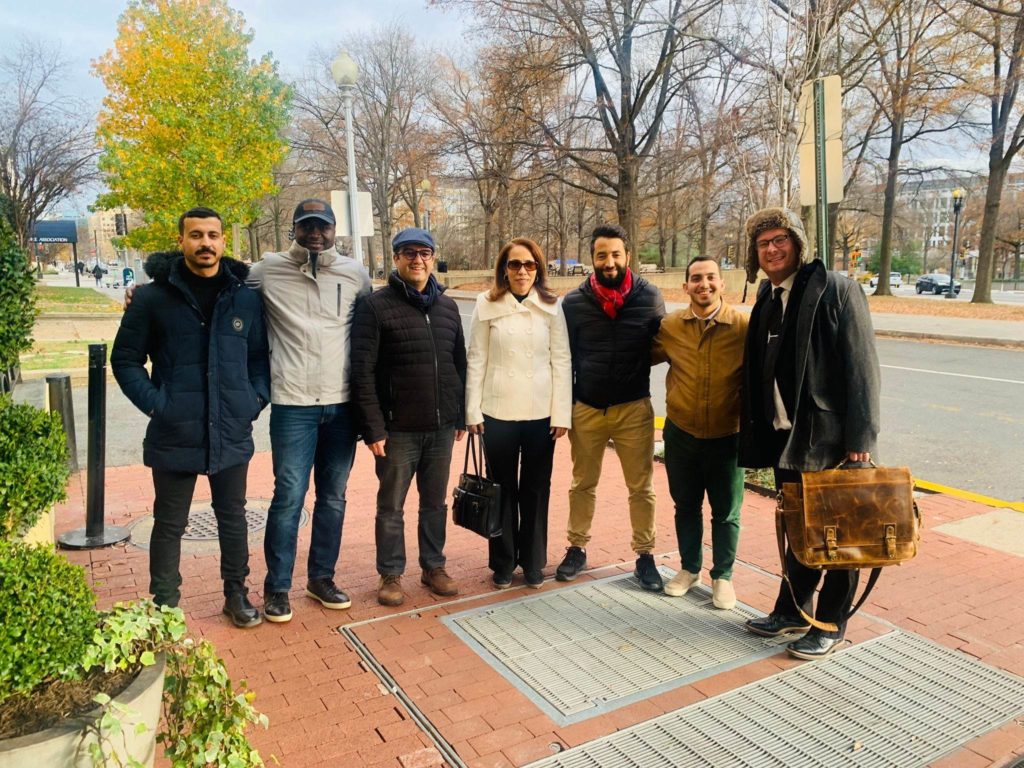The 3-day summit continued efforts to strengthen ties with African partners based on principles of mutual respect and shared interests and values. It also served as an opportunity to listen to and collaborate with African counterparts on key areas the United States and Africa define as critical for the future of the continent and global communities. The summit built on shared values to:
better foster new economic engagement;
reinforce the U.S.-Africa commitment to democracy and human rights;
mitigate the impact of COVID-19 and of future pandemics;
work collaboratively to strengthen regional and global health;
promote food security;
advance peace and security;
respond to the climate crisis; and
amplify diaspora ties.
Delegations from 49 African countries and the African Union, alongside members of civil society and the private sector attended the summit.
The first day kicked off with a focus on the vital role of civil society and the strength of the African diaspora communities in the United States. It featured sessions on topics ranging from trade and investment; to health and climate change; to peace, security, and governance; to space cooperation.
The second day focused on increasing two-way trade and investment at the U.S.-Africa Business Forum. CEOs and private sector leadership from over 300 American and African companies convened with the Heads of Delegation to catalyze investment in critical sectors, including health, infrastructure, energy, agribusiness, and digital.
The third and final day was dedicated to high-level discussions among leaders, with President Biden opening the day with a session on partnering on Agenda 2063—the African Union’s strategic vision for the continent.
Attalaki was represented by its Executive Director, Mr. Mahjoub Daadaa, during the US – Africa Leaders’ Summit by an invitation from the United States government.
Mr. Daadaa was present during the “How Can the U.S. Support an Inclusive Digital Transformation in Africa?” side event held at the Carnegie Endowment for International Peace on December 13th, 2022.
The event revolved on the following: “The African continent is undergoing a digital transformation that will shape African economies and societies for decades to come. Yet over 800 million Africans remain offline, including millions of youths who will drive the future of the region’s digital economy. The Biden administration’s “U.S. Strategy Toward Sub-Saharan Africa” outlines a plan to bolster economic ties with countries in the region, and the upcoming U.S.-Africa Leaders’ Summit will advance U.S.-African collaboration on the most pressing global and regional priorities of our day. How can policymakers, investors, and stakeholders in Africa and beyond best support the continent’s digital transformation? The Carnegie Africa Program hosted on the margins of the U.S.-Africa Leaders’ Summit an event including African policymakers and representatives from the U.S. government to discuss how the United States can partner with African countries to promote innovation and build an inclusive digital economy.”
The event was assured by speakers as follows:
Zainab Usman: a senior fellow and director of the Africa Program at the Carnegie Endowment for International Peace in Washington, D.C. Her fields of expertise include institutions, economic policy, energy policy, and emerging economies in Africa.
Lacina Koné: the director general and chief executive officer of Smart Africa.
Olugbenga Agboola: the chief executive officer and co-founder of “Flutterwave.”
Christopher Burns: the chief digital development officer and the director for the Technology Division within the Innovation, Technology, and Research Hub at the U.S. Agency for International Development.
Jane Munga: a fellow in the Africa Program focusing on technology policy.
John Tanui: Principal Secretary of the Republic of Kenya’s State Department for Information Communications Technology (ICT) and the Digital Economy.
Mr. Daadaa spoke with the director general and chief executive officer of Smart Africa, Mr. Lacina Koné, on the importance of protecting religious minorities within the workplace as well as on the digital space. He also, briefed them about the contemporary situation of religious minorities in Tunisia and how they face challenges in terms of employment because of their religious affiliations. The African business representative welcomed Mr. Daadaa’s comments and promised to keep them into consideration.



